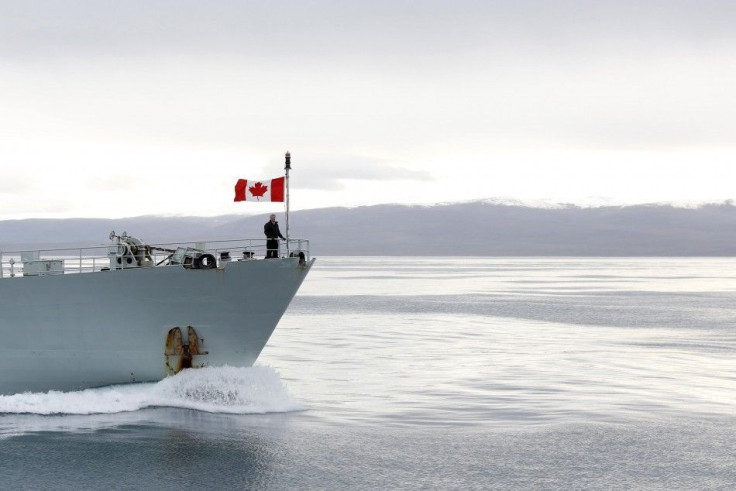Declassified CIA Report Reveals Friction Between US And Canada Over Arctic Sovereignty, Harper Orders Troops to Defend the North Pole Against Russian Dominion

A report that has been declassified by the U.S. CIA has revealed the battle on sovereignty over the Arctic region has caused a friction in the relations between the U.S. and Canada.
This friction first manifested during the time of Pierre Trudeau, former Canadian Prime Minister who served from April 20, 1968 to June 4, 1979, and again from March 3, 1980 to June 30, 1984.
Current Prime Minister Stephen Harper had just ended his yearly tour of Canada's North on Tuesday. He ordered the country's troops to guard the Arctic North Pole against Russian aggression.
"In Europe, we see the imperial ambitions of Vladimir Putin, who seems determined that, for Russia's neighbours, there shall be no peace...," Harper said. "And because Russia is also Canada's neighbour, we must not be complacent here at home."
Canada had long been asserting its dominion over the Arctic region, so much that it formally filed an application seeking to expand its Atlantic sea boundary before the United Nations in December 2013. In the same month, Russia vowed to beef up its military presence in the Arctic North Pole.
Read: Cold War Looms Between Canada and Russia Over Arctic Borders
In the August 1993 declassified report, the agency said it felt Canada's strong assertion in the North was due to the region's abundant petroleum, natural gas and coal reserves.
"This policy has been unilateralist and has resulted in some international friction, particularly with the United States," the report said.
Christopher Sands, a Canada-U.S. relations expert at the Washington-based Hudson Institute, said the U.S. had long been skeptical of Canada's efforts.
He told the Canadian Press the U.S. believes Canada is using the Arctic for domestic political purposes, without regard for commitments and capabilities.
Sands also believed Mr Harper will continue the claims his predecessors started over the Arctic, as Canada's top leader announced plans for new offshore patrol ships, a high-Arctic research station and a beefed-up military capability in the North. "Probably his successor will as well," he said.
Apart from Canada and Russia, Norway, Denmark and the U.S. are likewise laying claims over the expansive Arctic archipelago and its surrounding waters. All three countries had maintained the Lomonosov Ridge, abundant with minerals and oil, is a natural extension of their continental shelves. The Lomonosov Ridge runs beneath the ocean and close to the North Pole.
Discovered in 1948, the Lomonosov Ridge spans 1,800 km from the New Siberian Islands over the central part of the ocean to Ellesmere Island of the Canadian Arctic Archipelago. The width of the Lomonosov Ridge varies from 60 to 200 km, and it rises 3,300 to 3,700 m above the seabed.
The region holds 30 per cent of the world's undiscovered natural gas, along with 15 per cent of oil, according to the U.S. Geological Survey.
Mr Harper urged Canadian troops to safeguard the territory for the country's future.
"People who, given even a sliver of a chance, would destroy everything that we, as Canadians, hold dear and have repeatedly fought to protect."





















